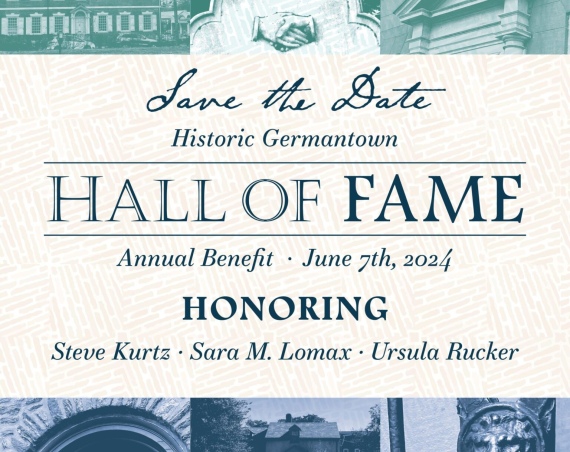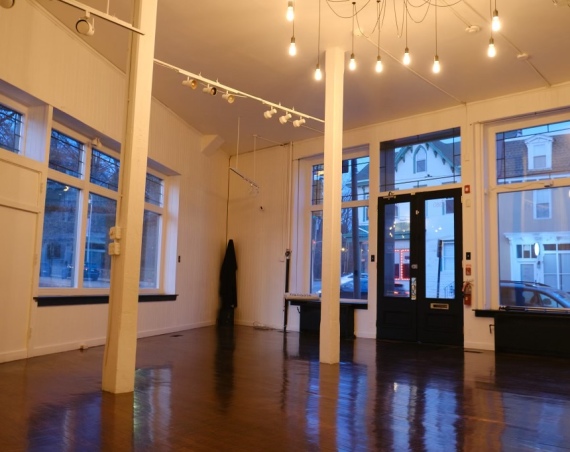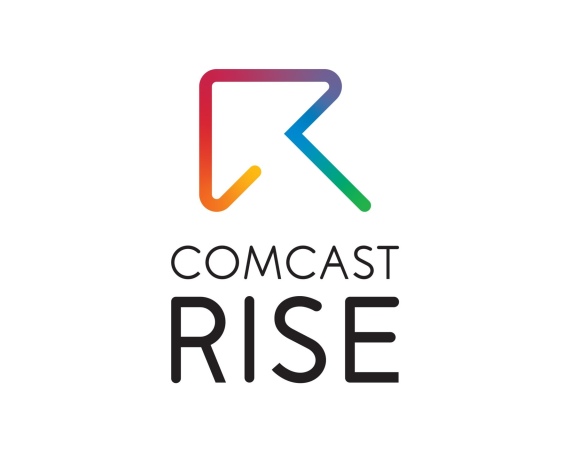Trigger warning for readers: there is a brief mention of death and suicide in this story.
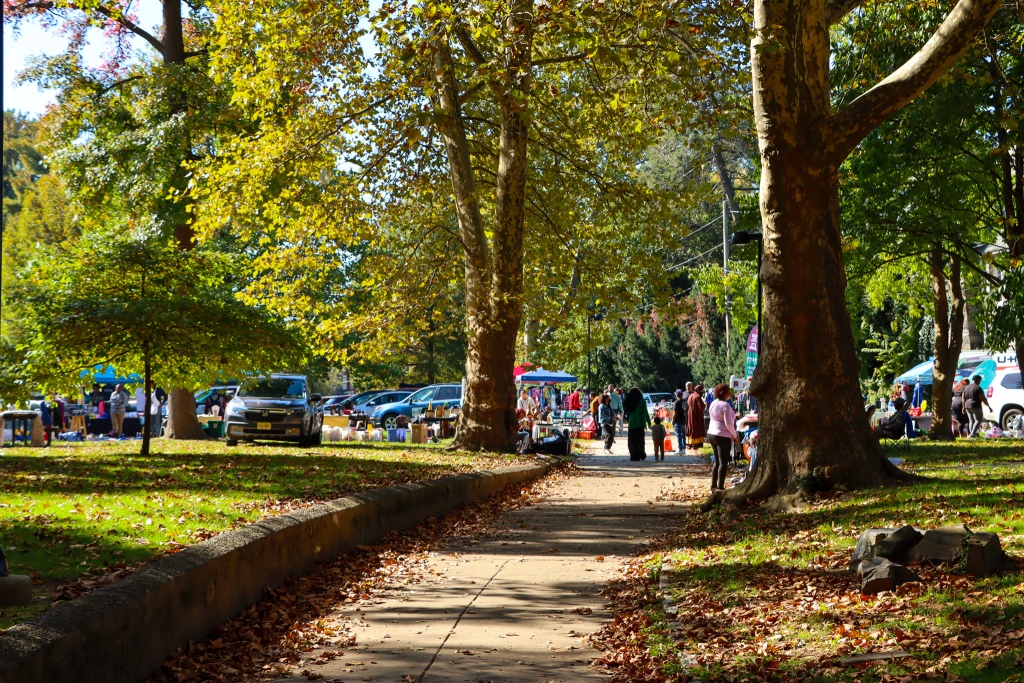
Are you missing a lost loved one and wishing you could talk to them again? Well, a traveling art installation coming to Germantown may help you do that.
The Thread is an activation that holds space for grief and connectivity among Philadelphia residents. It sat in the inaugural location of The Rail Park in the Callowhill section of Philly and is now coming to Vernon Park this Saturday.
So, how does this project hold space for folks to grieve? Through a disconnected rotary phone, of course! And because no one is on the other end of the line, anyone can be on the other line. Folks are encouraged to use their memories, in all forms — happy, sad, and complex — to talk to the folks they love and miss the most.
Can it feel a little silly at first? Maybe so. However, experts say that talking aloud to a deceased loved one can help you process grief and the wide range of emotions that come with it. According to Beth Jellinek, one of the project’s curators, it’s actually not unlike other healing therapies and exercises.
“Narrative therapies, [like] writing a letter to someone who’s died, is a regular practice and a lot of grief therapy,” Jellinek explains. “And so this is like another version of keeping the connection alive, of knowing that you can still connect.”
Jellinek did feel a brief feeling of awkwardness about speaking into a disconnected phone but soon felt the transformative effects when she talked to her deceased father.
“I picked up [the phone], and I was like, ‘Hi, Dad!” And [I] just immediately felt this connection and grief that I’ve seen others experience in grief work,” she said. “It was really powerful to speak out loud in a way that I’ve communicated with him and like feel the phone.”
Jellinek also says that this experience is much different than just traditionally speaking aloud — it’s almost like a personal conversation with a level of safety because it’s on the phone.
Jellinek gained inspiration during her Death Doula training, during which she learned about the Wind Phone in Iwate Prefecture in Honshu, Japan. The Wind Phone was created by Itaru Sasaki in 2010, who wanted to feel connected to a cousin. After the 2011 Tsunami, the phone was opened to the public, and since then, more than 30,000 people have used it.
Because of the various experiences of loss, Philadelphians have faced in the past few years, like the COVID-19 pandemic and the opioid and gun violence crises, Jellinek says there is a need to center that “disenfranchised grief.”
“This is not something we’ve collectively shared to just honor a name and open the range of what grief is,” she said.
According to the New York Times Coronavirus Tracker, over 50,000 Philadelphians died of COVID-19 between 2020 and 2023. A record number of Philadelphians also died of overdoses in 2022 at 1,413 deaths, with a rise in Black and Hispanic residents.
In 2021, Philadelphia had 562 gun-related homicides, which put the city at a record high since 1990, which had 500 homicides. Over the years, that number has fallen but remained above 400 by the end of 2023. Currently, Philadelphia has seen at least 133 homicides in 2024, which is a 40% decrease thus far from last year.
Germantown resident and “Grief Journeys” host Janice Tosto attended the Thread’s opening ceremony at the Rail Park last year after seeing a promotional post on Instagram. When she got to the space, she says it felt like she was “in a sacred environment” because she was somewhere specifically for other grievers to be amongst each other.
Tosto used the phone to call her late friend, Bill, and another acquaintance who she learned took their own life earlier that year. She found the experience transformative and, along with another goer from Germantown, instantly thought about why this would be good for Germantown.
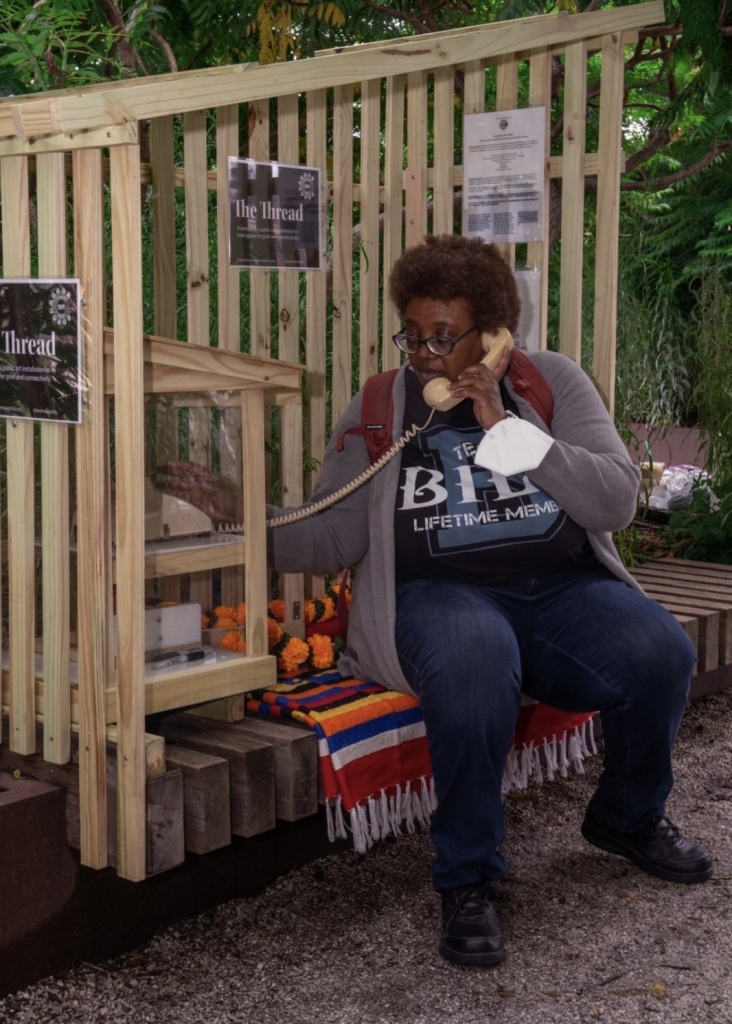
Janice Tosto using the rotary phone at the past The Thread installation at the Rail Park. (Photo provided by The Thread)
“And because of the violence that we had been seeing in Germantown, we thought that this would be a great place to have a public exhibition art installation about grief and healing,” Tosto explained.
That indication to Jellinek from Tosto, along with its accessibility appeal, prompted it to come to Vernon Park. According to The Thread’s website, the activation has a “commitment to inclusive programming that celebrates the city’s unique art and culture, nature, and health and wellness opportunities.” And as a fully accessible park with no steps, Vernon Park is a Cinderella slipper.
According to Jellinek, unlike the Rail Park, this temporary installation will help create a mosaic instead of a Ribbon Memorial.
She gives more details: “The mosaic memorial is an evolving, interactive piece of art attached to the phone booth for visitors to the Thread to honor their loved ones and their grief. Inside the booth will be a dispenser of mosaic pieces that folks can add to the mosaic frame. Each piece of the growing mosaic represents someone’s grief and loved ones. We hope the memorial invites connection and healing and is a beautiful piece of art to add to the park and complement the Sun Ra mosaic, our inspiration for this memorial.”
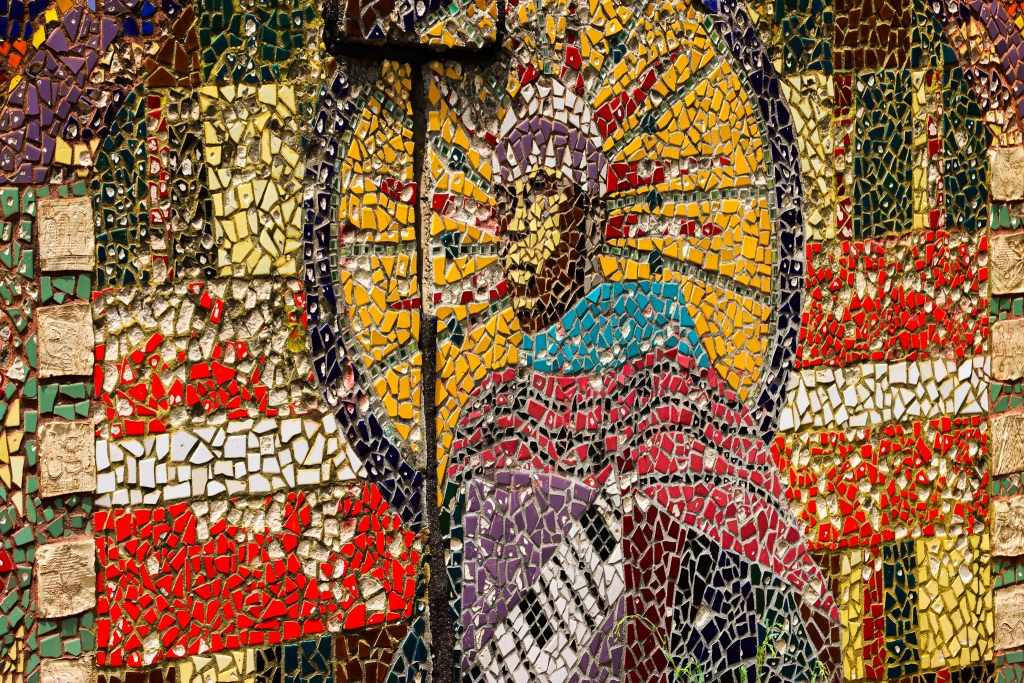
For folks who may not be able to visit the space physically, you are also welcome to use their voicemail line at (267) 314-7161. There, you can express your grief and healing about your loved ones and experiences on an actual line. Be advised that The Thread team may use these recordings in the future for a larger storytelling project.
The Thread’s opening ceremony will be this Saturday, July 20, from 10 to 11:30 a.m. It will occur in the park, in the green space between the Black Writers Museum and the playground.

